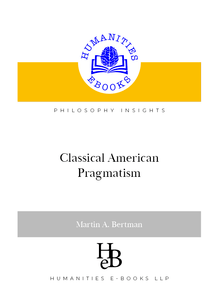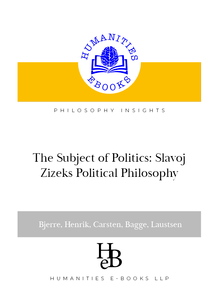-
 Univers
Univers
-
 Ebooks
Ebooks
-
 Livres audio
Livres audio
-
 Presse
Presse
-
 Podcasts
Podcasts
-
 BD
BD
-
 Documents
Documents
-
- Cours
- Révisions
- Ressources pédagogiques
- Sciences de l’éducation
- Manuels scolaires
- Langues
- Travaux de classe
- Annales de BEP
- Etudes supérieures
- Maternelle et primaire
- Fiches de lecture
- Orientation scolaire
- Méthodologie
- Corrigés de devoir
- Annales d’examens et concours
- Annales du bac
- Annales du brevet
- Rapports de stage
La lecture à portée de main
98 pages
English
Découvre YouScribe en t'inscrivant gratuitement
Je m'inscrisDécouvre YouScribe en t'inscrivant gratuitement
Je m'inscris
Obtenez un accès à la bibliothèque pour le consulter en ligne
En savoir plus
En savoir plus
98 pages
English
Obtenez un accès à la bibliothèque pour le consulter en ligne
En savoir plus
En savoir plus

Description
This book provides background for an understanding of Plato's philosophy in both ancient and contemporary contexts.
Sujets
Informations
| Publié par | Humanities eBooks |
| Date de parution | 11 janvier 2021 |
| Nombre de lectures | 0 |
| EAN13 | 9781847600479 |
| Langue | English |
| Poids de l'ouvrage | 1 Mo |
Informations légales : prix de location à la page 0,0200€. Cette information est donnée uniquement à titre indicatif conformément à la législation en vigueur.
Extrait
Running Head 1
The World is all that is the caseone must come to appreciate Plato’s writings Irst as Philosophy Insights works of art, and then allow the philosophical comprehension to follow General Editor: Mark Addis
Plato
Edward Moore
‘knowledge is the recollection of things that are true for all eternity’ http//www.humanities-ebooks.co.uk
Publication Data
© Edward Moore, 2007
The Author has asserted his right to be identiîed as the author of this Work in accordance with the Copyright, Designs and Patents Act 1988.
Published byHumanities-Ebooks.co.uk Tirril Hall, Tirril, Penrith CA10 2JE
Reading this Ebook
*Please adjust the magniîcation to 82% and progress by using the page forward / back buttons (to enlarge text further, select full screen: CTRL+L). *To navigate through the contents use the hyperlinked ‘Bookmarks’ at the left of the screen. *To search, click the search symbol and select ‘show all results’. *Hyperlinks, if any, are enabled for PC users only. *For the convenience of Mac users, any internal hyperlinks are also bookmarked, along with chapters and appendices. *To return from visitng an internal hyperlink or appendix please use the green ‘previous view’ button to return to your starting point (click once for each page you have visited to return from an extended hyperlink).
Licence and permissions
Purchasing this book licenses you to read this work onscreen and to print one copy for your own use. Copy and paste functions are disabled. No part of this publication may be otherwise reproduced or transmitted or distributed without the prior written permission of both the copyright owner and the publisher. Making or distributing copies of this book constitutes copyright infringement and would be liable to prosecution. Thank you for respecting the rights of the author. ISBN 9781847600479
Plato
Edward Moore
Philosophy Insights. Tirril: Humanities-Ebooks, 2007
Contents
Dedication
A Note on the Author
List of abbreviations
Chapter 1: Life and Times
Chapter 2. Intellectual Background 1. Presocratic Philosophers 2. The Sophists
Chapter 3. TheDialogues 1. Chronology of theDialogues 2. Documenting the Limitations of Writing 3. The Neoplatonic Curriculum
Chapter 4. Other Platonic Productions 1. Spuria 2. Dubia 3. Letters and Epistles 4. The “Unwritten Doctrines”
Chapter 5: The Forms 1. Form(al) Introduction 2. Knowledge as Recollection 3. Truth and Opinion 4. The “Good-Beyond-Being” Chapter 6: God and the Soul 1. God 2. Soul Select Bibliography
Dedication
I dedicate this book to my lovely and talented wife Marilynn Lawrence Moore. She created the illustrations and tables that adorn my modest volume. She also offered invaluable feedback throughout every phase of the production of this work. A most philosophical woman, she has opened my eyes to the glorious vision of that which really matters.
I maintain that the good is beautiful. What do you think?
~ Plato,Lysis(216d)
A Note on the Author
Edward Moore is Executive Editor ofTheandros: An Online Journal of Orthodox Christian Theology and Philosophy(www.theandros.com), and serves as Dean of the Philosophy Department, St. Elias School of Orthodox Theology (Nebraska). His published works include studies of Origen of Alexandria, St. Maximus the Confessor, Plotinus, Gnosticism, and Plato.
List of abbreviations
AAAlexander of Aphrodisias, = In Aristotelis metaphysica commentaria, ed. M. Hayduck (Berlin: 1891)
th DK= H. Diels, W. Kranz,Die Fragmente der Vorsokratiker(Berlin: 1952 [10 edition])
DL= Diogenes Laertius,Vitae philosophorum, ed. H. S. Long (Oxford: 1966)
LSJ =Liddell and Scott Greek-English Lexicon, Ninth Edition, with Revised Supplement (Oxford: 1996)
Chapter 1: Life and Times
1 Platowas born into one(427-347 B.C.), whose original name was Aristocles, of the most distinguished aristocratic families of Athens. His father, Ariston, was a descendant of Codrus and the old kings of Attica. Perictione, his mother, traced her lineage to a relative of Solon, and was a sister of Charmides and 2 cousin of Critias (both of whom appear in Plato’sDialoguesand). Charmides Critias were conservative politicians and members of the oligarchic “Thirty” who opposed the democratic movement in Athens. Charmides, the more contro-versial of the two, roused the ire of the democrats by reportedly taking part in the mutilation of the sacred statues of Hermes, and by parodying the “Olympian mysteries” in his home (these were considered acts of political provocation, for which Charmides was ofîcially accused).Critias rose to prominence among the oligarchic faction, and became a leader of the Thirty Tyrants, which eventually overthrew democratic leadership and, by way of a bloody revolt in which some îfteen hundred Athenians were put to death and even more expelled,ushered in a brief period of dictatorship in Athens. After nearly eight months, and with help from Sparta, democratic leadership was restored. In the aftermath, Plato’s beloved teacher Socrates, who had associated himself with Critias, Charmides and others of the oligarchic faction, was ‘tried and convicted, under the new democracy, of not recognising the gods of the city and of corrupting the young men.’ This event, perhaps more than any other, made an indelible impression on Plato’s life and thought.
2 3
He acquired the nickname Plato (Platôn) due to the ‘breadth (platutês) of his eloquence, or else because he was very wide (platus) across the forehead, as Neanthes afîrms’ (Diogenes Laertius 3.4.8–9, tr. Yonge). Diogenes Laertius, 3. ff. Andocides,De mysteriis16. Aeschines,De falsa legatione77; Xenophon,Hellenica2..1. T. H. Irwin (992), 60.
Plato 9
Plato had two brothers, Adeimantus and Glaucon, who îgure prominently in his dialogue theRepublic. From that work, we get the impression that Adeimantus was a rather restrained and quiet young man, lacking any real zeal for philosoph-ical investigations. Glaucon, on the other hand, is portrayed as an aspiring young politician, idealistic, of keen intelligence, and skilled in debate. Ariston, his father, died when Plato was still quite young; Perictione, his mother, re-married, this time to her uncle Pyrilampes, who led a rather tumultuous life as a young man. At one point he was placed on trial for murder, with no less than Pericles 1 as his accuser (indicating that this alleged murder had political implications). He was acquitted of the charge, later befriended Pericles, and eventually settled down to the quiet life of a gentleman on his country estate, where he spent his 2 time raising prize peacocks – a pursuit for which he gained some distinction. Plato spent his early years amidst the trappings of aristocratic elegance, ‘in a house where interest in literature and philosophy was a matter of tradition.’ It is likely that he received the customary training in gymnastics, and that he was expected to pursue a political career. However, as a youth Plato was more inter-ested in poetry than politics, composing epigrams and even a tragedy, which he reportedly consigned to the ames after hearing Socrates for the îrst time.‘His description in theRepublic(VI. 493c–494e) of the talented young man, brought up in a rich and distinguished circle and who resists the inducements of his rela-tives and rejects the career which they propose in order to devote himself to philosophy, is obviously autobiographical.’ We know that Plato was acquainted with the earlier philosophical tradition collectively called the Pre-Socratic, and that he studied with the Heraclitean philosopher Cratylus, after whom he titled one of his most important dialogues. However, it is by far the teaching and example of Socrates that had the most inuence on Plato as a philosopher. Through Socrates, Plato came to focus his thought on moral and ethical issues – virtue (aretê) – especially as these came to bear upon the political situ-
2 34
5
Alban D. Winspear (96), 62. Plutarch,Pericles13.15. Eduard Zeller (9), 33. Some fragments of Plato’s epigrams and his attempted tragic play survive. E. Diehl, ed.,Anthologia lyrica Graeca, third edition (Leipzig: 949) 02–0; B. Snell, ed.,Tragicorum Graecorum frag-menta, vol. (Göttingen: 97) 86. Zeller, 133.
-
 Univers
Univers
-
 Ebooks
Ebooks
-
 Livres audio
Livres audio
-
 Presse
Presse
-
 Podcasts
Podcasts
-
 BD
BD
-
 Documents
Documents
-
Jeunesse
-
Littérature
-
Ressources professionnelles
-
Santé et bien-être
-
Savoirs
-
Education
-
Loisirs et hobbies
-
Art, musique et cinéma
-
Actualité et débat de société
-
Jeunesse
-
Littérature
-
Ressources professionnelles
-
Santé et bien-être
-
Savoirs
-
Education
-
Loisirs et hobbies
-
Art, musique et cinéma
-
Actualité et débat de société
-
Actualités
-
Lifestyle
-
Presse jeunesse
-
Presse professionnelle
-
Pratique
-
Presse sportive
-
Presse internationale
-
Culture & Médias
-
Action et Aventures
-
Science-fiction et Fantasy
-
Société
-
Jeunesse
-
Littérature
-
Ressources professionnelles
-
Santé et bien-être
-
Savoirs
-
Education
-
Loisirs et hobbies
-
Art, musique et cinéma
-
Actualité et débat de société
- Cours
- Révisions
- Ressources pédagogiques
- Sciences de l’éducation
- Manuels scolaires
- Langues
- Travaux de classe
- Annales de BEP
- Etudes supérieures
- Maternelle et primaire
- Fiches de lecture
- Orientation scolaire
- Méthodologie
- Corrigés de devoir
- Annales d’examens et concours
- Annales du bac
- Annales du brevet
- Rapports de stage
Signaler un problème
YouScribe
Le catalogue
Le service
© 2010-2024 YouScribe




















